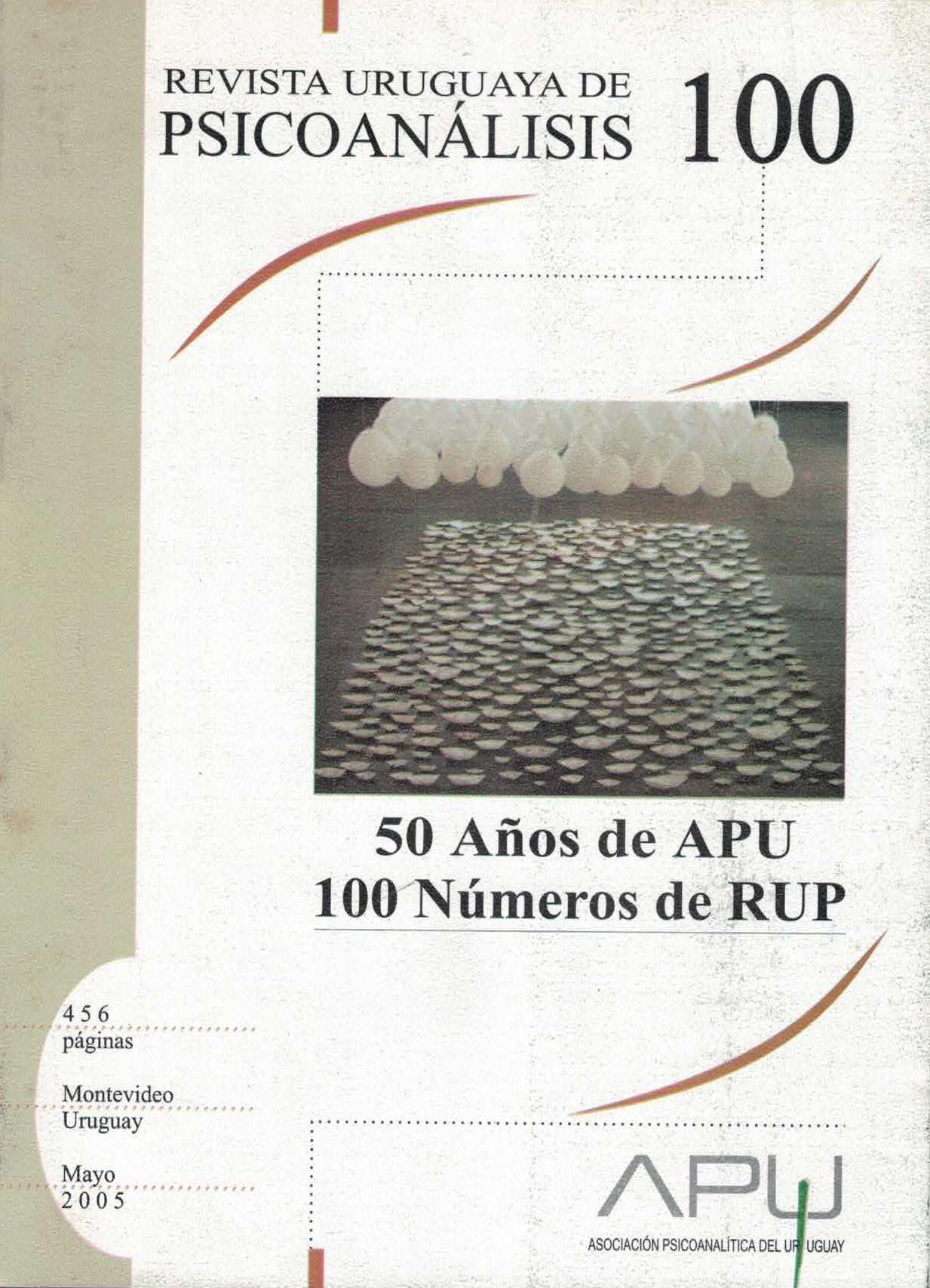Qué después del pluralismo?; Ulises aún en camino
Palabras clave:
epistemología, formación psicoanalítica, historia del psicoanálisis, Asociación Psicoanalítica del UruguayResumen
No es fácil transmitir qué significa ser psicoanalista en Montevideo. No me refiero solamente a las dificultades para comprender uno mismo y explicar luego a los demás qué significa ser psicoanalista, sino a algo más sencillo. ...
Descargas
Referencias
BERNARDI,R. 1989. The role of paradigmatic determinants in psychoanalytic understanding. The International Journal of Psychoanalysis 70, 341-347.
BERNARDI,R. 1992. On Pluralism in Psychoanalysis. Psychoanalytic Inquiry 12, 506-525.
BERNARDI,R. 2001. Psychoanalytic Goals: New and Old Paradoxes. The Psychoanalytic Quarterly vol. 70 n.1, 67-98.
BERNARDI,R. 2002. The need of true controversies in psychoanalysis. The debates about M. Klein and J. Lacan in the Río de la Plata. The International Journal of Psychoanalysis 83, 851-873.
BERNARDI,R. 2003. What kind of evidence makes the analyst change his or her theoretical and technical ideas? In: Pluralism and Unity? Methods of Research in Psychoanalysis. Leuzinger-Bohleber,M.&.D.A.U.a.J.C. (ed), pp.125-136.
BERNARDI,R. & DE LEÓN,B. 1992. Does our Self-Analysis Take into Consideration our Assumptions? In: Self-Analysis. Critical Inquiries, Personal
Visions. James W.Barron,Ed. (ed), The Analytic Press., New Jersey.
KOHUT,H. 1971. Analysis of the self. New York, International Universities Press.
SANDLER,J. 1983. Reflections on some relations between psychoanalytic concepts and psychoanalytic practice. Int.J.Psychoanal. 64, 35-45.
WALLERSTEIN,R.S. 1988. One psychoanalysis or many? Int.J.Psychoanal. 69, 5-21.



 This work is licensed under a
This work is licensed under a 